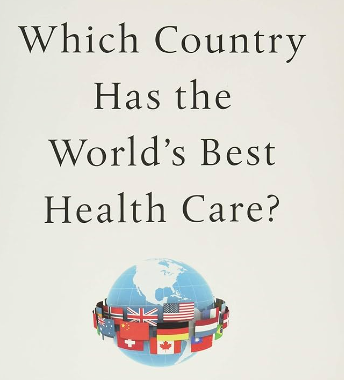Introduction to Healthcare System
The phrase “healthcare” refers to the broad range of services that humans depend on to help them maintain their own health by treating (or preventing) illness, injury, disease, and other physical or mental disabilities.
Medical professionals, hospitals, dentists, psychology, nursing, physical therapy, occupational therapy, and other fields are all included in healthcare.
Numerous national healthcare systems exist, and access to care differs between nations, localities, and people, mostly depending on social and economic variables.
Many people and governments consider access to healthcare to be a fundamental human right. Individuals without access to high-quality healthcare frequently experience reduced life expectancy and a lower quality of life than those who benefit from a stable, reasonably priced healthcare system. The general state of health is better in nations with advanced, well-functioning healthcare systems than in those with less developed systems.
The care process (safety, coordinated care, engagement, patient preferences, and preventative care measures), access (timeliness and affordability), administrative effectiveness, equity, and healthcare outcomes (population health, mortality amenable to healthcare, and disease-specific health outcomes) are just a few of the many factors that go into determining the quality of healthcare.
It’s not too difficult to recognize a superior healthcare system. Health care systems are intricate, but there are a number of ways to identify the most efficient ones. There is a great deal of discussion on the ideal system and what aspects matter most in these very complicated systems. However, because healthcare is so important, organizations that are focused on health continue to look for that perfect, illusive system.
Analysis of Health Care System Around the Globe
The Health Care Index, published by CEO World Magazine, “is a statistical analysis of the overall quality of the health care system, including health care infrastructure; health care professionals (doctors, nursing staff, and other health workers) competencies; cost ; quality medicine availability, and government readiness.”

Country with Best Health Care System
According to the most recent rankings that what country has the best healthcare system , Denmark is thought to have the most advanced public healthcare system in the world. The rankings looked at how people felt about the quality of healthcare systems in various nations across the world. Canada came in third on the list, after Sweden in second.
The effectiveness and caliber of a nation’s healthcare system can significantly affect the standard of living for its citizens. A strong public health care system is crucial because a country’s ability to care for its citizens has a significant impact on that country’s health.
10. A New Zealand
New Zealand has an excellent state-sponsored healthcare system. It offers inhabitants free or heavily discounted medical care and is financed by taxes.
9- Austria
The healthcare system in Austria is highly regarded. Both foreigners and Austrians must pay into the government health insurance program, which is subsidized by taxpayers and offers top-notch medical facilities and services.
8- France
Both state-run and private hospitals in France uphold a comparable standard of excellence. It is not necessary to obtain private health insurance, however it is wise to have coverage when residing in France.
7- Australia
The public health system and the private health system comprise the two primary components of Australia’s healthcare system. The Commonwealth Government’s universal health insurance program has been called Medicare since 1984. This entitles citizens of Australia to free medical care in public hospitals.
6. The Netherlands
In the Netherlands, there are two mandatory insurance programs that cover healthcare: Algemene Wet Bijzondere Ziektekosten (AWBZ) covers long-term nursing and care, and Zorgverzekeringswet (Zvw), sometimes referred to as “basic insurance,” covers routine medical care.
5. Germany
Although pricey, Germany’s healthcare system is excellent. It is required for expatriates to have health insurance, and most will have it included to their employment contract.
4- The United Kingdom
British healthcare has proven to be dependable and practical for both locals and foreign employees. Numerous choices are available for emergency medical treatment through the National Health Service, Scottish, and Northern Ireland state programmes.
3. The Canada
All citizens and permanent residents of Canada are covered by a network of socialized health insurance plans that make up the publicly funded health care system in the country. Many people in Canada credit the effectiveness of their health care system for the country’s extraordinarily high life expectancy rate.
2. Sweden
Above-average healthcare spending and high standards of quality care are hallmarks of the Swedish health care system. Just 600,000 or so Swedes have access to a private health plan, which is often paid for by their employers and can be useful in avoiding waiting lists for medical care.
1. Denmark: Country with the Best Health Care
The majority of the funding for Denmark’s universal health care system comes from income taxes and offers Danes essentially free medical treatment. A national health insurance card is provided to all permanent residents, and the majority of exams and treatments are free.
Conclusion
At end of this article, you are now well aware about that what country has the best healthcare system across the globe. Denmark consistently ranks among the top countries in terms of healthcare quality and accessibility. Its robust healthcare system combines universal coverage, efficient administration, and strong preventive care measures. Denmark is one of the best-performing nations, alongside Italy, Singapore, and Iceland. Additionally, the Legatum Prosperity Index highlights Denmark’s commitment to health, emphasizing factors like health outcomes, health systems, and mortality rates.






